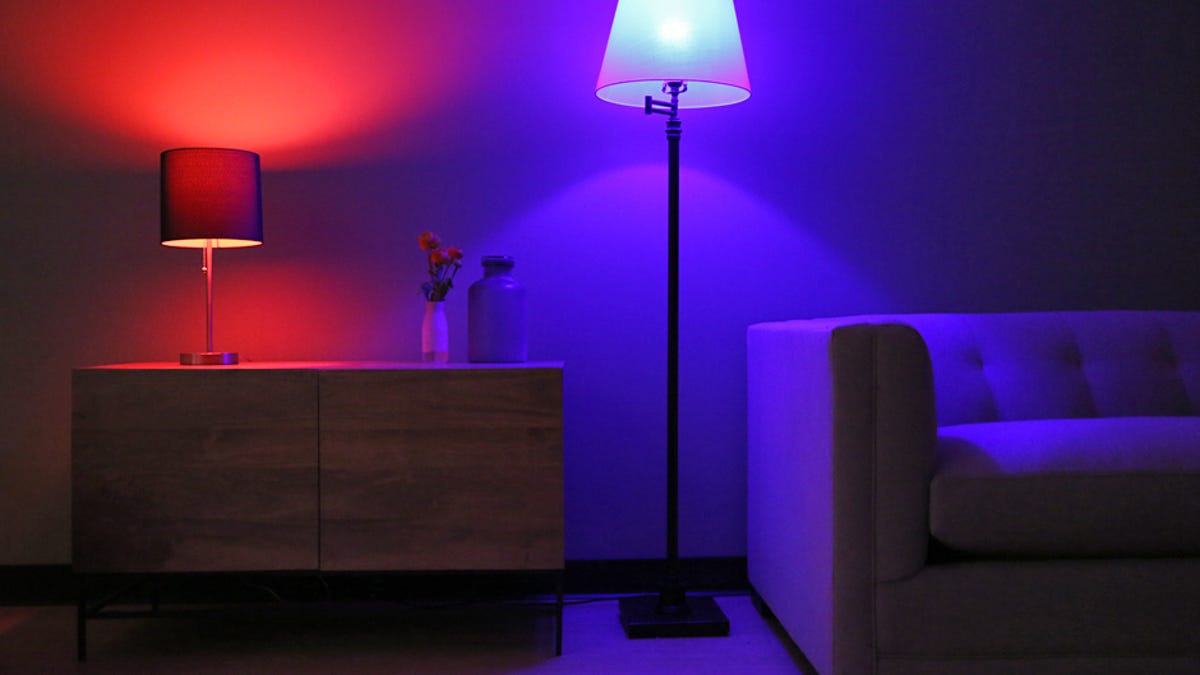Philips Hue cuts support for third-party bulbs
Citing "an increasing number of interoperability issues," Philips is changing its policies and locking out third-party smart bulbs until they can be certified through the "Friends with Hue" program.
EDITOR'S NOTE, 12:50 PM, 12/16/2015: Admitting that it "underestimated the impact this would have on a small number of customers," Philips has announced that it will reverse this software update and continue to allow uncertified third-party Zigbee bulbs to be paired with the Hue Bridge. The story and a full comment from Philips are posted here.
If you've noticed that your Philips Hue Bridge won't let you add third-party smart bulbs to your setup anymore, it isn't because your system is broken. A new update to Hue's software issued last week ends support for bulbs that communicate using the ZigBee wireless protocol, but don't bear the Hue name. That includes low-cost lights like the GE Link LED and the Cree Connected LED.
The move comes in the form of version 1.11 of the Philips Hue operating software, released for both the first- and second-generation Hue Bridge last week. After a number of complaints from users, Philips issued a written update and FAQ to explain the measure, citing an increase in "interoperability issues" with untested third-party products as the deciding factor. Specifically, Philips points to "confusing differences in setup and resetting," along with instances of third-party bulbs keeping the Philips Hue Wireless Dimmer Switch from working correctly.
It's a disappointing development for anyone who bought into Hue on the merits of its open approach to smart lighting. One of Hue's trump cards has long been its ability to wrangle third-party bulbs together within a single, well-developed system, the promise being that you could buy a Hue starter kit and then expand your system with the third-party bulbs of your choice. That isn't the case anymore, at least for the time being.
Philips is launching a "Friends of Hue" program to certify third-party bulbs -- that could bring bulbs like the Cree Connected and GE Link LEDs back into the picture.
Moving forward, Philips is launching what it calls the "Friends of Hue" program, which it says will certify third-party bulbs for use in the Hue ecosystem. That should ultimately bring some third-party bulbs back into the Hue fold, but for now, Philips isn't offering specifics on when that process will begin, how long it will take or which bulbs will be certified first. Until it does, Hue is suddenly looking an awful lot like a walled garden.
On the other hand, closing things off and certifying third-party bulbs on a case-by-case basis could help Hue streamline its development process, as Philips won't need to worry about how untested ZigBee bulbs might affect the customer experience. It's an approach that's worked well for Google's Nest Learning Thermostat, which certifies third-party device integrations through the Works with Nest program. Philips' mistake might simply have been not launching Friends of Hue right from the start, and instead, switching gears three years into the platform's lifespan with little to no warning.
Philips claims that the move only stops users from adding new third-party bulbs to their setups. That means that third-party bulbs that you've already added to your system should continue to function as they did before, though Philips offers no guarantees that future updates won't expose new compatibility issues.
Philips also says that the change doesn't affect third-party control apps, of which there are several, including popular options like Hue Disco, which syncs your lights with whatever music you're playing. It also adds that the move won't affect third-party product integrations that aren't lighting-specific -- things like the SmartThings connected home platform and the Amazon Echo smart speaker.
"We are seeing an increasing number of issues with untested lights from other brands," a spokesperson for Philips said when asked for comment. "This is making Philips Hue harder to use and making it difficult for us to add new features. We can only guarantee a seamless experience if we certify them and put these products under continuous test like our own."


